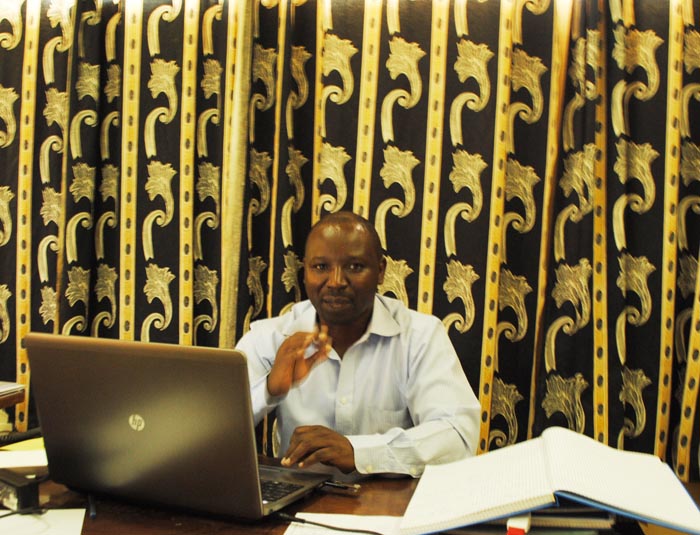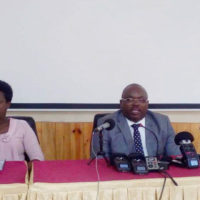Burundi is ranked at the top in maternal death in EAC. The only approach which should discount the ratio is social accountability or responsibility.-By Diane Uwimana

Dr Prosper Niyongabo: “This rate shows that we are far away from the objectives of the Millennium Development Goals (MDGs), where it is 275 maternal deaths per 100,000 births.”©Iwacu
“There are bad figures. The lack of infrastructures which are adapted to pregnant women and enough qualified staff personnel is one of the problems faced by pregnant women. This causes maternal death,” says Prosper Niyongabo, Researcher at National Institute of Public Health (INSP). He goes on saying that those who are near health centres of hospitals do not go there on time. “Perhaps, they do not trust the personnel staff services,” he continues. So, a kind of communication channel should help them express themselves. “This will remove the obstacles occurred such as transport problems, impracticable roads and the lack of ambulances, which are the most indirect causes of maternal deaths”, highlights Dr Niyongabo. He points out that this is shown through the results of the recent survey of the population and health in Burundi. The figures show that Burundi is ranked at the top in the EAC countries where it lists the maternal mortality ratio from 500 to 100,000 births. It is worth indicating that figures were at 866 deaths to 100.000 births in 2008. “This rate shows that we are far away from the objectives of the Millennium Development Goals (MDGs), where it is 275 maternal deaths per 100,000 births,” notes Dr Niyongabo.
According to some surveys conducted in other countries (Tanzania (2010), Rwanda (2010), Uganda (2006) and Rwanda (2010)) the maternal death ratio is ranked under 500 deaths to 100,000 births. In DRC, the rate is 545 maternal deaths per 100,000 births as it is stated in the survey conducted in 2007.
Performance of the health system remains weak
According to Dr Prosper Niyongabo, the causes of maternal death in Burundi are several: haemorrhage, malaria, abortion, hypertension, hepatitis, severe anaemia, infections and obstructed labour. The country has 0.3 physicians and 1.9 nurses per 1000 people while the World Health Organization recommends two or three personnel units to 100 people. “Normally we must have 80 centres which care for pregnant women and newborns but we have only 22 centres all over the country,” adds Niyongabo. Dr. Niyongabo also believes that the culture of social accountability is not yet implemented in health services in Burundi. Women and care providers have not sufficient spaces to express their misgivings about the quality of health care. Despite efforts by the Government, deficiencies persist in this area. “Rural women travel long distances to reach health facilities. These latter also remain inadequate in health centres and physicians hardly exist there”, he points out.
Using the new approach will help the government implement theories just to analyse and integrate them in the national health policies. “In each commune, there is a health centre but pregnant women who come to consult nurses or doctors remain very few. This shows that there is a hidden cause which needs to be clarified and solved”, concludes Dr Niyongabo. The new approach will only last for five years.


















 IWACU Open Data
IWACU Open Data

